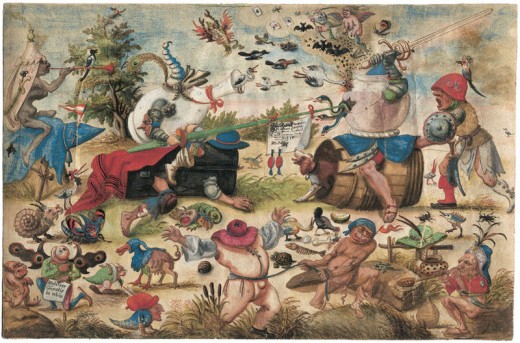Can we dream the future: precognitive dreams

Mr. and Mrs. Edward W. Bill were about to take a sea voyage. Mrs Bill hasd a dream the ship was being wrecked and they cancelled their trip. The ship was the Titanic. A ten year old girl dreamed about a school being engulfed by a wall of black stuff shortly before a school, and she herself was indeed devoured by a collapsing colliery spoil tip.
Time and Dreams are mysteries we all experience. Prophetic dreams are Russian Doll mysteries within mysteries. Where mundane explanations are ruled out these anomalies may tell us something about Consciousness, Time and the relationship between the two.

Prophetic Dreams
Two weeks before he was shot dead, Abraham Lincoln dreamed about a funeral at the White House. In his dream, he asked someone who was in the casket and they said, "the president of the United States". Neither he nor his wife took it to heart - for on the night of his assassination he gave his bodyguard the night off.
Mark Twain, and his brother Henry once worked on riverboats on the Mississippi. One night Mark dreamed his brother's corpse was lying in a metal coffin, supported by two chairs with a bouquet and a single crimson flower in the centre, in his sister's living room. He told his sister about his dream. Weeks later, his brother was killed in a massive explosion on a riverboat. Most victims were buried in wooden coffins but one onlooker felt so sorry for young Henry that she raised the money for an expensive metal coffin. At the funeral, he saw the coffin as it was in his dream, without the rose. As he stood over Henry's casket, a woman placed a bouquet with a single red rose in the middle.
Mr. and Mrs. Edward W. Bill cancelled their trip on the Titanic after Mrs. Bill had a dream of Titanic being wrecked; they sailed on Celtic instead (London Daily Mirror, 18 April 1912).
The magazine POPULAR was printing a story for the May issue in 1912. The story was about a ship that set sail and hit a berg. The story was being printed at the same time Titanic was getting ready to leave Southampton. The author dreamed the story when sailing on the Olympic.
There are a number of indications of premonitions of the disaster other than dreams [16] though given there were over 2000 passengers and many wanted to travel but could not get a ticket, this could be coincidental. One interesting example is Norman Craig, who was a Scottish MP and King’s Counsel, and had originally booked passage aboard the Titanic for her maiden voyage to America but he never made the trip. He said “I suddenly decided not to sail, I cannot tell you why; there was simply no reason for it.” “I had no mysterious premonitions or visions of any kind nor did I dream of any disaster.” “But I do know that, at practically the last moment, I did not want to go.” [17]
A colliery spoil-tip that occurred there in 1966 killing 144 people, including 116 children occurred in the Welsh village of Aberfan. The slurry hit the side of the Pantglas Junior School and part of the separate senior school, demolishing most of the buildings and filling the classrooms with thick mud and rubble up to 30 feet deep
A ten year old girl, later killed in the disaster described a dream she had approximately 48 hours before the disaster [18].
"Mummy, it was so strange. I dreamed I went to school and there was no school there. Something black had come down all over it."
There are many other examples of precognitive dreams before the disaster [18] some of which can be confirmed to have happened before the disaster.

Possible explanations
Some dreams may result from unconscious knowledge, for example a woman who dreams she is pregnant and three months later finds she became pregnant at that time. It may also be information that the dreamer does not want to acknowledge: some dreams reflect the state of the body. Washington's dream could arguably be attributed to the risk of assassination all public figures face, though whe saw his own coffin, rather than dream of being shot, is puzzling. Perhaps he was sharing someone else's vision of seeing him in his coffin.
The world population is large enough that a substantial number of people will dream of a disaster on any one night and when a disaster happens some of these dreams will reflect the disaster. While, at a stretch, this may be used to explain the Aberfan precognitive dreams, some dreams are so detailed that it is impossible to assign a probability to the dream. Mark Twain's dream, for example contains two details that could not be expected if he had just been dreaming random worries about his brother: The metal casket and the single rose placed the woman put in the centre of the caske
The statistical explanation is plausible but cannot be disproved: most people do not record their dreams and forget them soon after waking. What is remembered are the ones that are funny, strange enough to stick in the mind or disturbing. Further, some precognitive dreams are symbolic, and only recognised as precognitive later or recognised at the moment they come true, which raises problems for serious investigators.
Although it feels like explaining one mystery with another precognitive dreams could be telepathic in nature. For example Lincoln could have been in telepathic contact with the assassin and building up a dream scenario in accordance with the telepathic impressions from John Wilkes Booth. The Mark Twain case is much stronger
The cases presented here are only the tip of the iceberg and Zohar [22] give many more cases, as part of a more general study of precognition.

Time and Dreams
f we provisionally accept the reality of PSI we must distinguish between predictive telepathic and clairvoyant dreams. A clairvoyant dream informs the dreamer of something that has already happened: the location of a lost will, the fact that a recently purchased coat could be infected with a form of Typhus, or the meaning of an inscription on an artefact as dremed by an archaeologist. Subconscious knowledge must be eliminated from consideration: for example a woman lost a diamond earring and several nights later dreamed it was trapped inside a vanity unit in a local pub. She arranged to get a plumber to pull up the floorboards (she must have got on well with the landlord and the plumber) and found the earring exactly where she had dreamed of it (Fortean Times 124 p.11). Here her subconscious could be telling here where it was lost.
J.W Dunne in his book An experiment with Time collected many cases of predictive dreams and concluded that dreamers have access to the future, if only a few days into the future. It seems likely that the gap between the dream and the event is at positively related to its emotional significance: The stronger the content, the longer the gap. Against this is the apparent lack of reports of precognitive dreams of terrorist attacks or mass shootings in the USA. Perhaps however the constant reporting of such things in the News has dulled the emotional impact for many.
Wrapping up
On the face of it precognitive dreams suggest we do not understand the world as well as we think and that the view that the future is inaccessible to us may not be quite correct. But without a theory there is no way this will be accepted by cautious scientist and skeptics generally.
Dunne's theory of a multidimensional time has been discussed by philosophers among others and has faced compelling objections. This means we must confront the evidence and formulate another theory. One contender is a complex 8 dimensional space time that could connect arbitrary points, or even in space time [21]. Perhaps the dreaming mind can distort complex space time just as gravity does, to connect these regious but the dreamer is merely an observer. If this speculation can be sustained then a dreaming mind can somehow connect with the future.
Since some precognitive dreams have resulted in actions that prevented tragedies happening, while leaving evidence that they would have happened had preventive action not been taken, the dream would have to be of a potential future or a dream of a parallel universe. As an example, had the dreams about Aberfan been taken seriously the school would have been evacuated and the spoil heap would have collapsed or been inspected and identified as unsafe. Perhaps there is a universe where the school was empty the day the spoil heap collapsed.
Further reading
-
The Speed of Thought: Investigation of a Complex Space-Time Metric to Describe Psychic Phenomena ELIZABETH A. RAUSCHER AND RUSSELL TARG Journal of Scientific Exploration, Vol. 15, No. 3, pp. 331–354, 2001
-
Through the Time Barrier: Danah Zohar, Heinemann 1982








